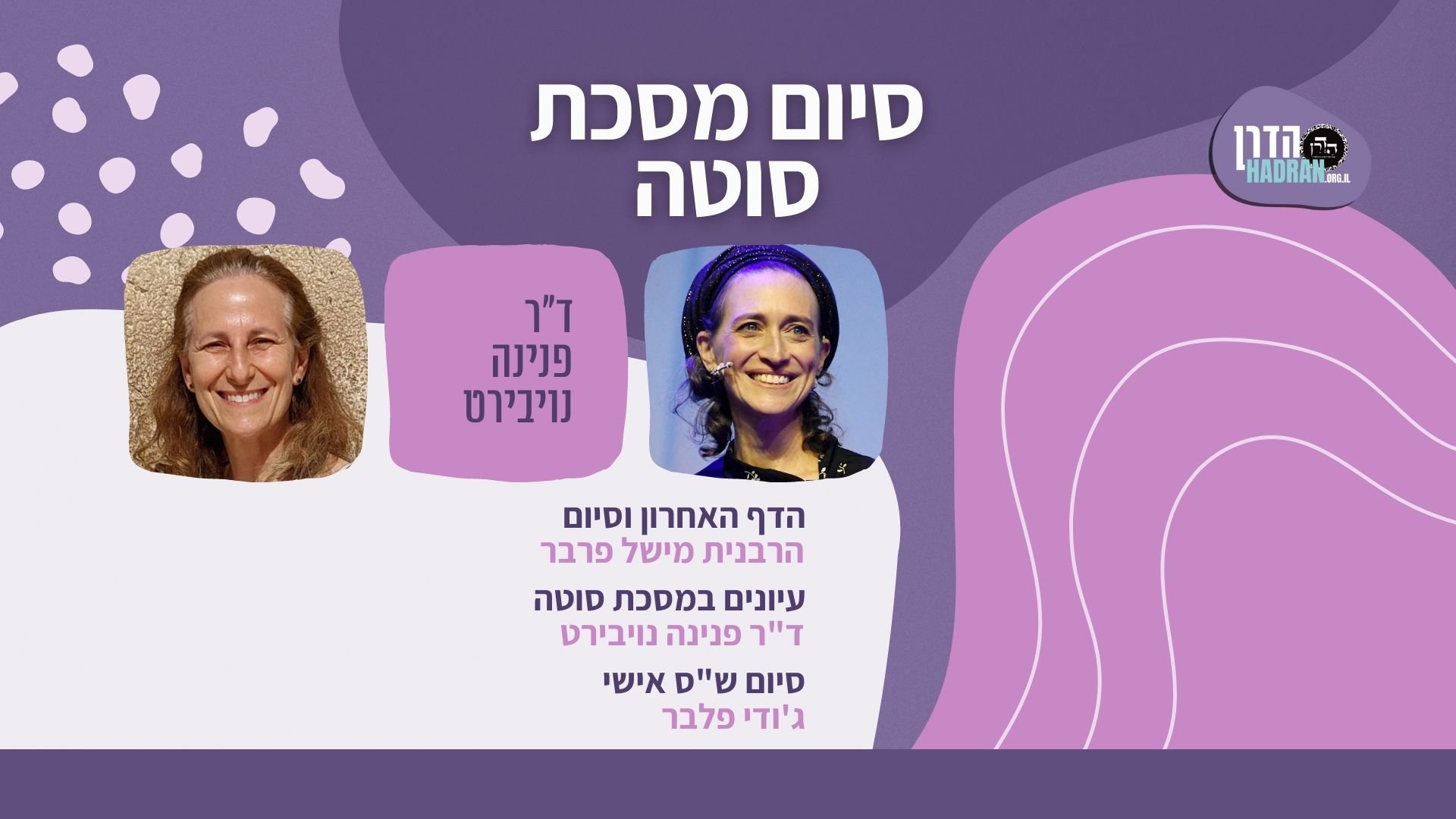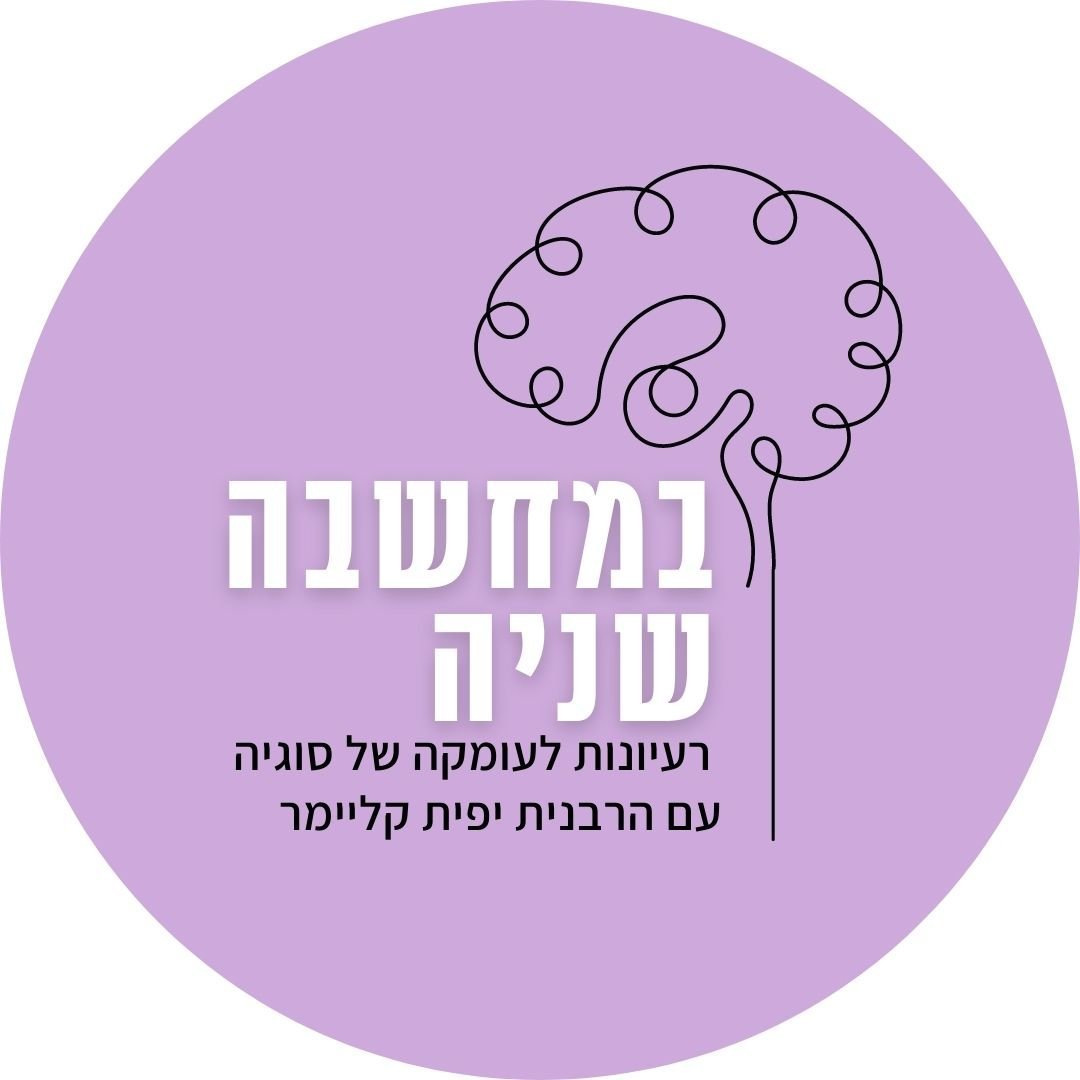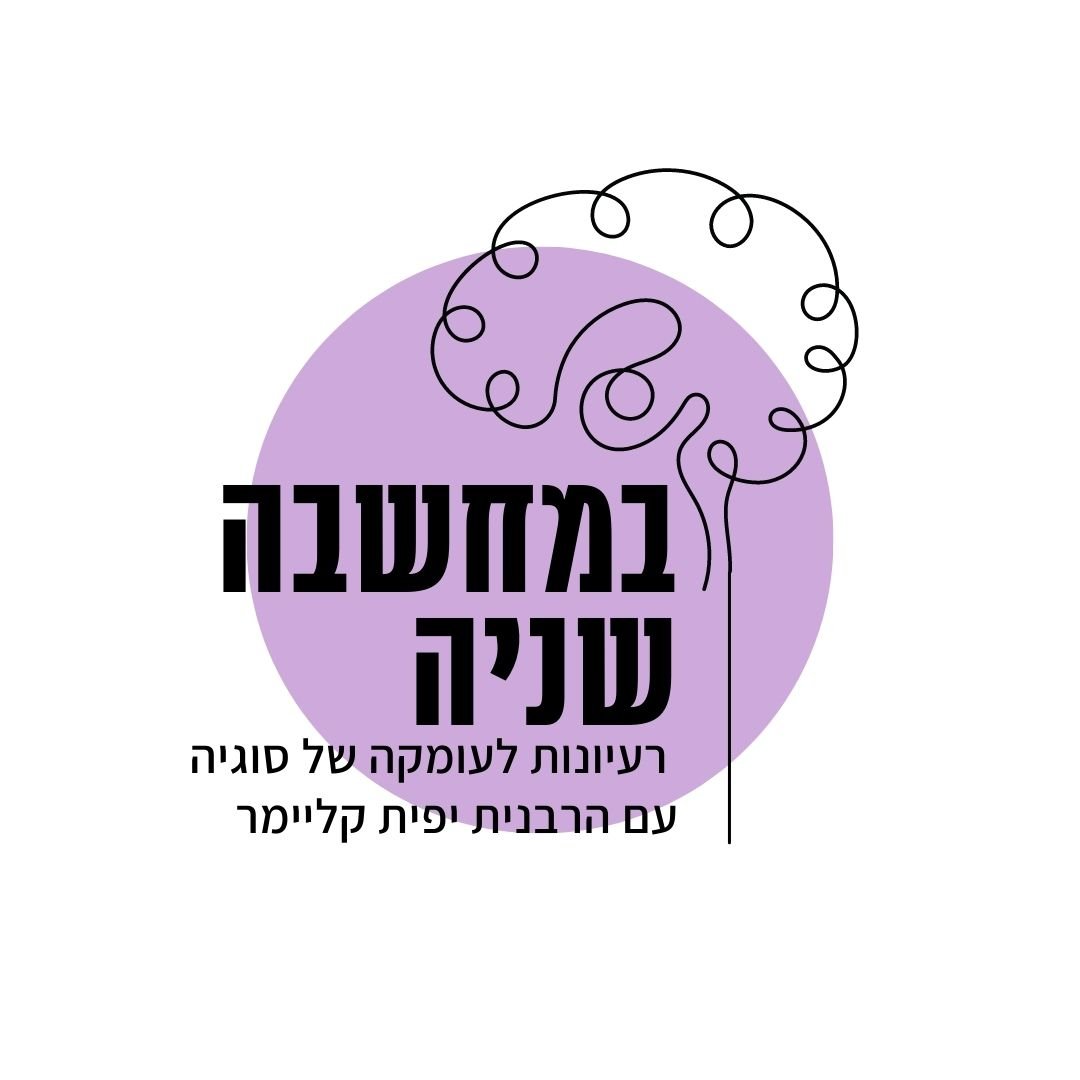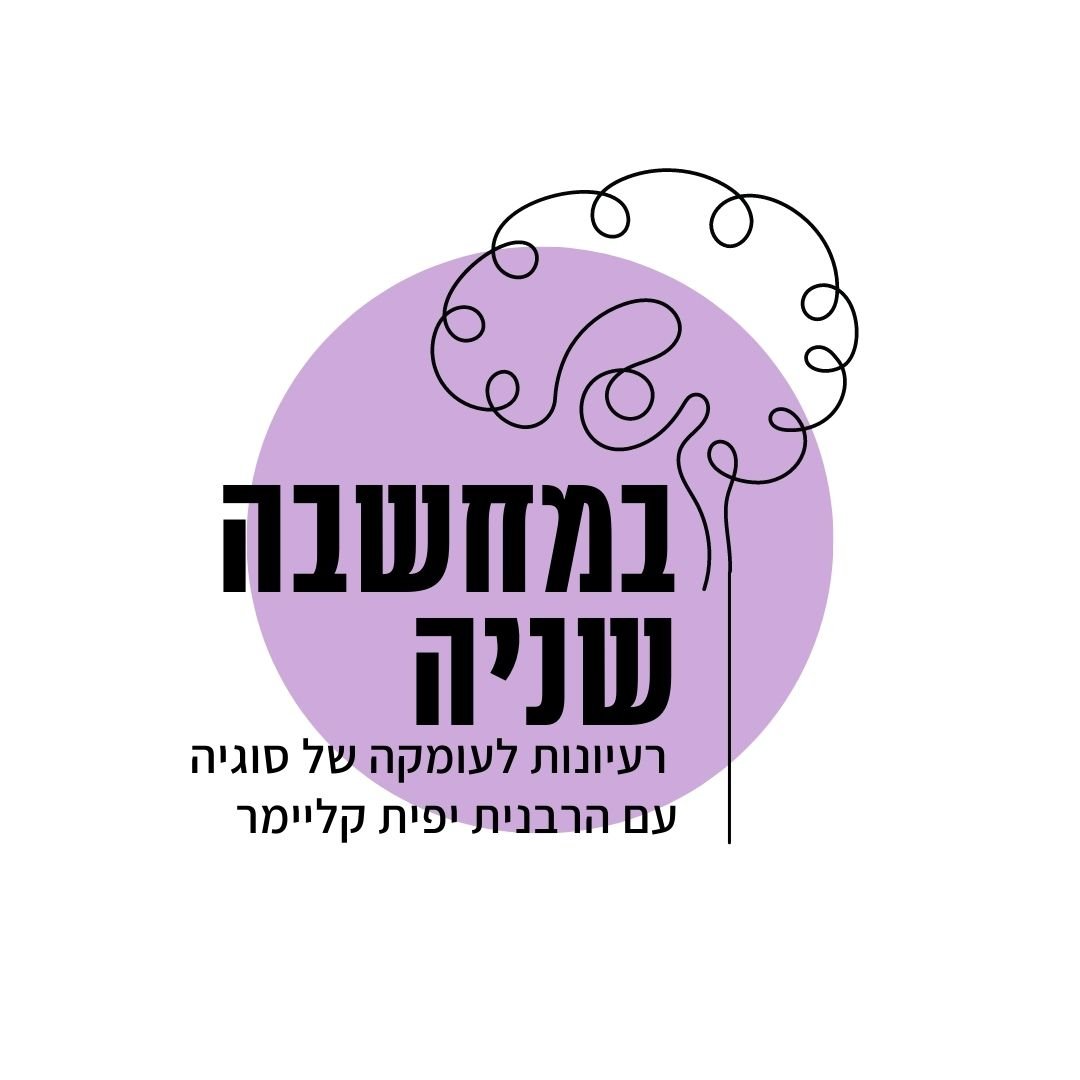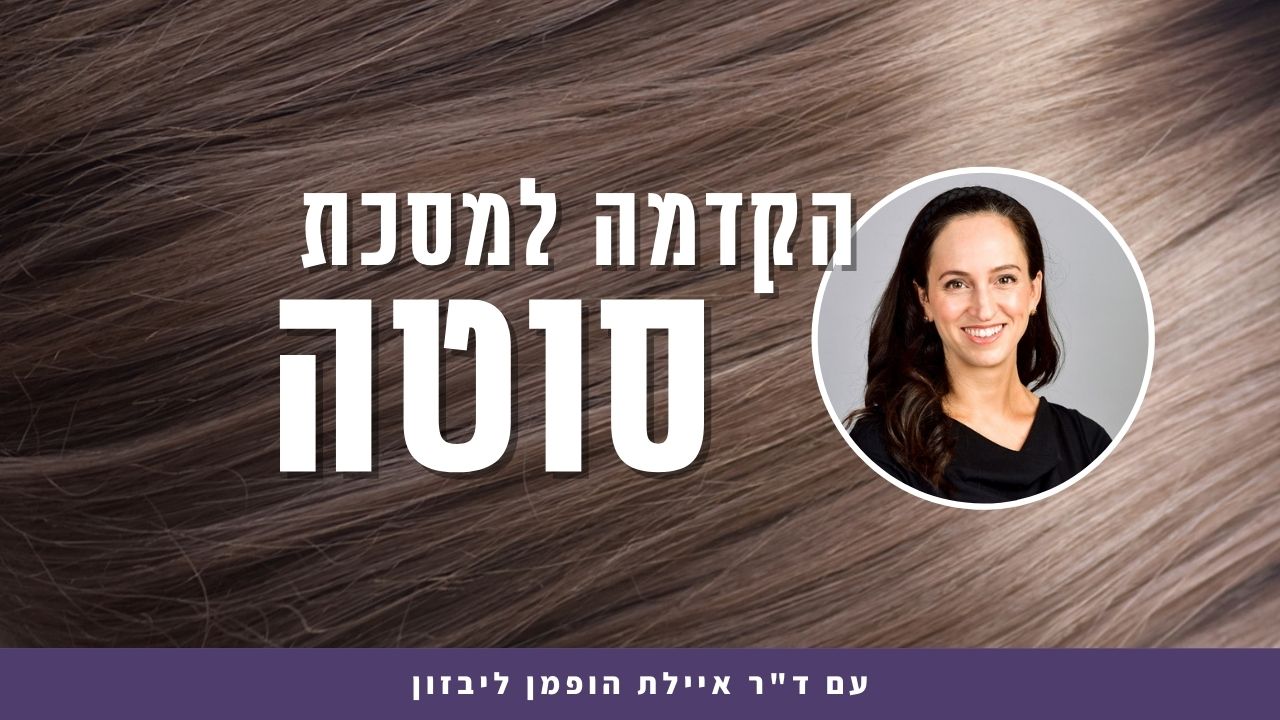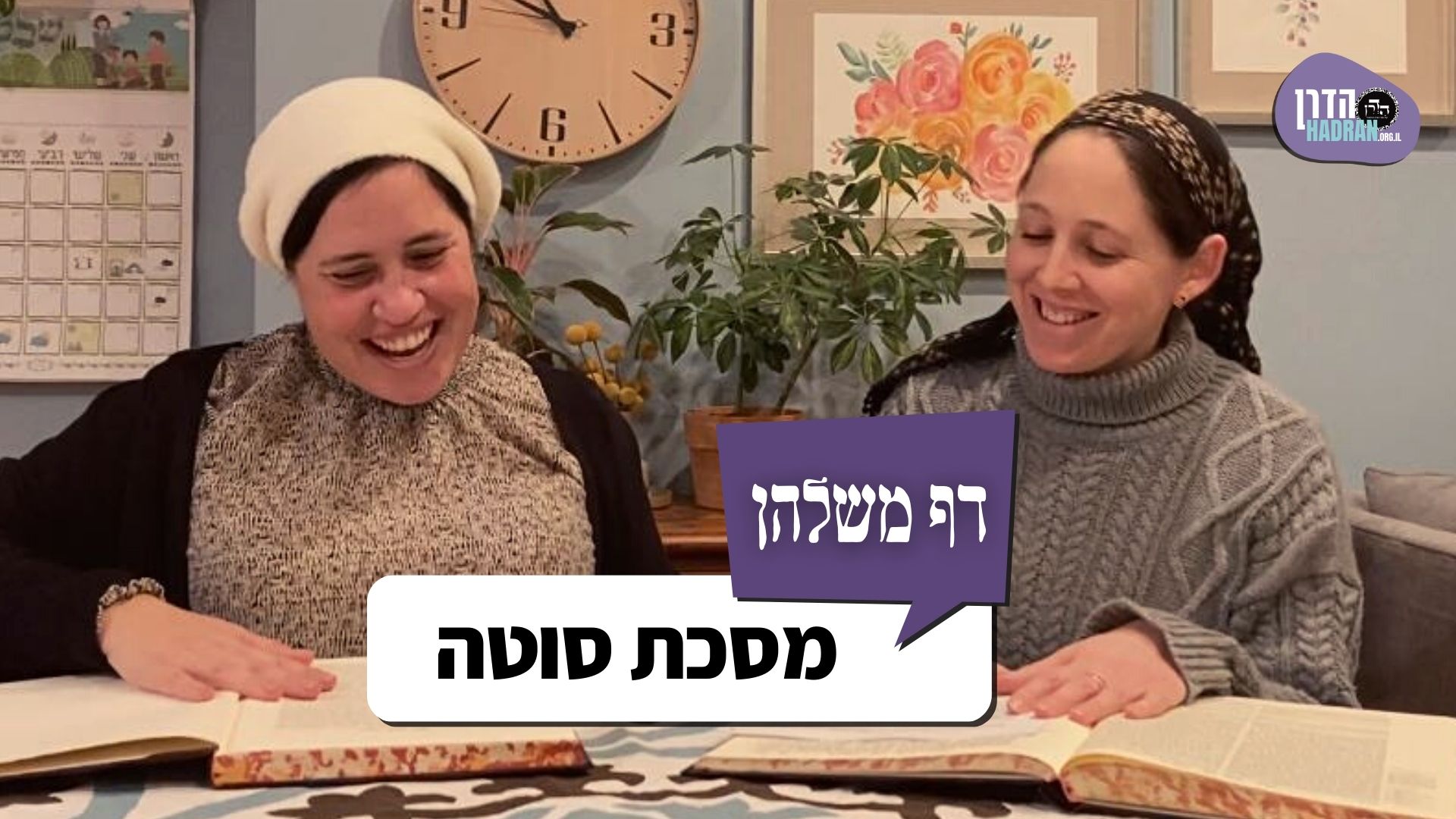סוטה ל
שְׁלִישִׁי הַבָּא מֵחֲמַת שֵׁנִי, דְּשֵׁנִי גּוּפֵיהּ אָסוּר בְּחוּלִּין — אֵינוֹ דִּין שֶׁעוֹשֶׂה רְבִיעִי בַּקּוֹדֶשׁ?
whose third-degree impurity came from contact with an item of second-degree impurity, in which case the item with the second-degree impurity is itself forbidden, i.e. impure, even if it is non-sacred food, isn’t it logical to infer that it should be able to impart fourth-degree impurity upon sacrificial food?
וְכִי תֵּימָא מִשּׁוּם דְּאִיכָּא לְמִיפְרַךְ: מָה לִטְבוּל יוֹם שֶׁכֵּן אַב הַטּוּמְאָה — הָא אַיְיתִינֵהּ מִמְּחוּסַּר כִּיפּוּרִים, וְלָא פַּרְכֵיהּ!
And if you would say that the reason Rabbi Yosei did not employ this a fortiori inference is because it can be refuted as follows: What is unique about one who immersed that day is that prior to his immersion he was a primary source of impurity, this cannot be, as Rabbi Yosei brought proof for the existence of a fourth degree of impurity from the case of one who has not yet brought an atonement offering, who was also a primary source of impurity prior to his immersion, and Rabbi Yosei clearly did not refute the proof due to this factor. Therefore, the reason Rabbi Yosei did not employ an a fortiori inference from the case of food that contracted impurity from one who immersed that day is clearly that he disagrees with the opinion of Abba Shaul. Consequently, Rabbi Yoḥanan concluded that he cannot understand Rabbi Yosei’s reasoning.
אָמַר רַב אַסִּי אָמַר רַב, וְאָמְרִי לַהּ אָמַר רַבָּה בֶּן אִיסִי אָמַר רַב: רַבִּי מֵאִיר, וְרַבִּי יוֹסֵי, וְרַבִּי יְהוֹשֻׁעַ, וְרַבִּי אֶלְעָזָר, וְרַבִּי אֱלִיעֶזֶר — כּוּלְּהוּ סְבִירָא לְהוּ דְּאֵין שֵׁנִי עוֹשֶׂה שְׁלִישִׁי בְּחוּלִּין.
§ Rabbi Asi said that Rav said, and some say Rabba ben Isi said that Rav said: Rabbi Meir, and Rabbi Yosei, and Rabbi Yehoshua, and Rabbi Elazar, and Rabbi Eliezer all hold that an item of second-degree ritual impurity status cannot impart third-degree ritual impurity status to non-sacred items. Rav proceeds to prove this by attributing support from the rulings of each of these tanna’im.
רַבִּי מֵאִיר — דִּתְנַן: כׇּל הַטָּעוּן בִּיאַת מַיִם מִדִּבְרֵי סוֹפְרִים, מְטַמֵּא אֶת הַקּוֹדֶשׁ, וּפוֹסֵל אֶת הַתְּרוּמָה, וּמוּתָּר בַּחוּלִּין וּבַמַּעֲשֵׂר, דִּבְרֵי רַבִּי מֵאִיר. וַחֲכָמִים אוֹסְרִין בַּמַּעֲשֵׂר.
Rabbi Meir is of this opinion, as we learned in a mishna (Para 11:5): Anything that requires immersion in water by rabbinic law renders sacrificial food impure upon contact, with second-degree impurity, and disqualifies teruma, meaning that it renders the teruma itself impure, but not to the extent that the teruma can render other teruma impure. And anything that requires immersion in water by rabbinic law is permitted for non-sacred food and for the second tithe, i.e., it does not render these items impure. This is the statement of Rabbi Meir. But the Rabbis prohibit one who has this degree of impurity from partaking of the second tithe. From the fact that Rabbi Meir permits him to partake of the second tithe, it is inferred that he maintains that an item of second-degree impurity cannot impart third-degree impurity upon non-sacred items.
רַבִּי יוֹסֵי — הָא דַּאֲמַרַן. דְּאִם אִיתֵיהּ — לַיְיתֵיהּ לִרְבִיעִי בַּתְּרוּמָה, וַחֲמִישִׁי בַּקּוֹדֶשׁ.
It is evident that Rabbi Yosei is of this opinion from that which we have stated above, that he derives that sacrificial food can contract fourth-degree impurity, because if he holds that non-sacred items can contract third-degree impurity, he should have derived through his a fortiori inference that there is fourth-degree impurity vis-à-vis teruma and fifth-degree impurity vis-à-vis sacrificial food, since each of these categories has a unique level of impurity.
רַבִּי יְהוֹשֻׁעַ — דִּתְנַן, רַבִּי אֱלִיעֶזֶר אוֹמֵר: הָאוֹכֵל אוֹכֶל רִאשׁוֹן רִאשׁוֹן, שֵׁנִי — שֵׁנִי, שְׁלִישִׁי — שְׁלִישִׁי. רַבִּי יְהוֹשֻׁעַ אוֹמֵר: הָאוֹכֵל אוֹכֶל רִאשׁוֹן וְאוֹכֶל שֵׁנִי — שֵׁנִי, שְׁלִישִׁי — שֵׁנִי בַּקּוֹדֶשׁ, וְאֵין שֵׁנִי בַּתְּרוּמָה.
Rabbi Yehoshua is of this opinion, as we learned in a mishna (Teharot 2:2): Rabbi Eliezer says: One who eats food with first-degree impurity assumes first-degree impurity. One who eats food with second-degree impurity assumes second-degree impurity. One who eats food with third-degree impurity assumes third-degree impurity. Rabbi Yehoshua says: One who eats food with first-degree impurity or food with second-degree impurity assumes second-degree impurity. One who eats food with third-degree impurity assumes second-degree impurity vis-à-vis sacrificial food, and he does not assume second-degree impurity vis-à-vis teruma.
בְּחוּלִּין שֶׁנַּעֲשׂוּ עַל טׇהֳרַת תְּרוּמָה.
Eating an item with third-degree impurity is possible only in the case of non-sacred items, as eating impure teruma or sacrificial food is prohibited. However, generic non-sacred food cannot contract third-degree impurity at all. Therefore, the case of one who eats food with third-degree impurity refers specifically to non-sacred food items that were prepared as if their level of purity were on the level of the purity of teruma. By means of a vow, one can establish the purity status of non-sacred food items to be treated on the level of purity necessary for teruma.
עַל טׇהֳרַת הַתְּרוּמָה — אִין, עַל טׇהֳרַת הַקּוֹדֶשׁ — לָא.
The Gemara infers from Rabbi Yehoshua’s statement that yes, one is able to prepare items as if their level of purity were on the level of the purity of teruma; but one is not able to prepare items as if their level of purity were on the level of the purity of sacrificial food, and such items would not contract third-degree impurity.
אַלְמָא קָסָבַר: אֵין שֵׁנִי עוֹשֶׂה שְׁלִישִׁי בְּחוּלִּין.
The Gemara concludes: Apparently, Rabbi Yehoshua holds that an item of second-degree impurity cannot impart third-degree impurity upon ordinary non-sacred items that were not prepared on the level of the purity of teruma.
רַבִּי אֶלְעָזָר — דְּתַנְיָא, רַבִּי אֶלְעָזָר אוֹמֵר: שְׁלָשְׁתָּן שָׁוִין, הָרִאשׁוֹן שֶׁבַּקּוֹדֶשׁ וְשֶׁבַּחוּלִּין וְשֶׁבַּתְּרוּמָה —
Rabbi Elazar is of this opinion, as it is taught in a mishna (Teharot 2:7): Rabbi Elazar says: The three of these are equal in their ability to impart ritual impurity to other items: An item of first-degree impurity, whether it is an item of sacrificial food, or of non-sacred food, or of teruma.
מְטַמֵּא שְׁנַיִם, וּפוֹסֵל אֶחָד בַּקּוֹדֶשׁ,
With regard to sacrificial food, such an item renders impure two additional levels of contact, enabling the items that contracted ritual impurity from it to transfer that impurity to items that they in turn touch afterward. And it disqualifies one level afterward, imparting upon the food fourth-degree impurity, which cannot impart impurity to a fifth item.
מְטַמֵּא אֶחָד, וּפוֹסֵל אֶחָד בַּתְּרוּמָה,
With regard to teruma, an item of first-degree impurity renders impure one additional level of contact, i.e., it imparts second-level impurity to teruma food with which it comes into contact, and that item in turn disqualifies one additional level afterward, as that teruma food imparts third-degree impurity upon teruma.
וּפוֹסֵל אֶחָד בַּחוּלִּין.
And with regard to non-sacred food, an item of first-degree impurity merely disqualifies one additional level of non-sacred food. Evidently, non-sacred items cannot go beyond a second-degree impurity.
רַבִּי אֱלִיעֶזֶר, דִּתְנַן, רַבִּי אֱלִיעֶזֶר אוֹמֵר: חַלָּה נִיטֶּלֶת מִן הַטְּהוֹרָה עַל הַטְּמֵאָה, כֵּיצַד? שְׁתֵּי עִיסּוֹת אַחַת טְהוֹרָה וְאַחַת טְמֵאָה, נוֹטֵל כְּדֵי חַלָּה מֵעִיסָּה שֶׁלֹּא הוּרְמָה חַלָּתָהּ, וְנוֹתֵן פָּחוֹת מִכְּבֵיצָה בָּאֶמְצַע כְּדֵי לִיטּוֹל מִן הַמּוּקָּף.
Rabbi Eliezer also agrees with this principle, as we learned in a mishna (Ḥalla 2:8): Rabbi Eliezer says: Ḥalla can be taken from ritually pure dough on behalf of ritually impure dough. How so? If there are two batches of dough, one of which is pure and one of which is impure, one takes the required amount of dough for separating ḥalla for both of the batches from the pure dough when its ḥalla has not yet been separated for itself, and then places less than an egg-bulk of dough, which is not susceptible to becoming ritually impure due to its size, in the middle, between the impure dough and the pure dough set aside for being used as the separated ḥalla. This joins all of the dough together, so that one can fulfill the requirement to take dough for separating ḥalla from dough that is situated near the dough it comes to exempt.
וַחֲכָמִים אוֹסְרִין.
And the Rabbis prohibit separating ḥalla in this manner.
וְתַנְיָא כְּבֵיצָה.
And it is taught in a baraita that Rabbi Eliezer even allows the ritually pure dough placed in the middle to be as large as an egg-bulk, even though dough of that size is susceptible to the halakhot of ritual impurity.
סַבְרוּהָ אִידֵּי וְאִידֵּי בְּעִיסָּה רִאשׁוֹנָה, וְחוּלִּין הַטְּבוּלִין לְחַלָּה לָא כְּחַלָּה דָּמוּ.
The Gemara now explains the reasoning of those who tried to prove from here that Rabbi Eliezer is of the opinion that second-degree ritual impurity cannot impart third-degree ritual impurity upon non-sacred items: They assumed that both this mishna and this baraita are referring to cases where the dough is of first-degree impurity. And furthermore, they assumed that all the tanna’im agree that non-sacred food that is untithed with regard to the obligation to separate ḥalla, as its ḥalla has not yet been separated, is not treated like ḥalla as far as its ability to contract third-degree ritual impurity. Rather, it is regarded as generic non-sacred food, which is susceptible only to second-degree impurity.
מַאי לָאו בְּהָא קָמִיפַּלְגִי, דְּמָר סָבַר: אֵין שֵׁנִי עוֹשֶׂה שְׁלִישִׁי בְּחוּלִּין,
Based on these assumptions the Gemara explains how these authorities understood the tannaitic dispute: What, is it not clear that Rabbi Eliezer and the Rabbis disagree with regard to the following matter: One Sage, Rabbi Eliezer, holds that an item of second-degree impurity cannot impart third-degree impurity to non-sacred items. Therefore, there is no problem placing an egg-bulk of pure dough in the middle, as although it will touch the impure dough and will thereby contract second-degree impurity, nevertheless it is unable to transmit impurity to the pure dough.
וּמָר סָבַר: שֵׁנִי עוֹשֶׂה שְׁלִישִׁי בְּחוּלִּין.
And one Sage, i.e., the Rabbis, holds that an item of second-degree impurity can impart third-degree ritual impurity to non-sacred items. They therefore prohibit placing an egg-bulk of dough in the middle, as it will assume second-degree impurity status, which, in their opinion, can impart third-degree impurity status upon the pure dough.
אָמַר רַב מָרִי בְּרֵיהּ דְּרַב כָּהֲנָא: דְּכוּלֵּי עָלְמָא אֵין שֵׁנִי עוֹשֶׂה שְׁלִישִׁי בְּחוּלִּין, וְהָכָא בְּחוּלִּין הַטְּבוּלִין לְחַלָּה קָמִיפַּלְגִי. מָר סָבַר: כְּחַלָּה דָּמוּ, וּמָר סָבַר: לָא כְּחַלָּה דָּמוּ.
Rav Mari, son of Rav Kahana, said that the dispute can be understood differently: Everyone agrees that an item of second-degree ritual impurity cannot impart third-degree ritual impurity to non-sacred items. But here, the dispute concerns another matter, as they disagree with regard to the status of non-sacred food that is untithed vis-à-vis ḥalla, as its ḥalla has not yet been separated. One Sage, i.e., the Rabbis, holds that it is treated like ḥalla with regard to its ability to contract third-degree impurity, and one Sage, Rabbi Eliezer, holds that it is not treated like ḥalla and cannot contract third-degree impurity. Therefore, he permits separating ḥalla in this manner.
וְאִיבָּעֵית אֵימָא: דְּכוּלֵּי עָלְמָא חוּלִּין הַטְּבוּלִין לְחַלָּה לָא כְּחַלָּה דָּמוּ, וְאֵין שֵׁנִי עוֹשֶׂה שְׁלִישִׁי בְּחוּלִּין, וְהָכָא בְּמוּתָּר לִגְרוֹם טוּמְאָה לְחוּלִּין שֶׁבְּאֶרֶץ יִשְׂרָאֵל קָמִיפַּלְגִי.
And if you wish, say instead that they disagree with regard to a different issue: Everyone agrees that non-sacred food that is untithed with regard to ḥalla is not treated like ḥalla and cannot contract third-degree impurity, and that an item of second-degree ritual impurity cannot impart third-degree ritual impurity to non-sacred items. But here, they disagree with regard to whether or not it is permitted to cause ritual impurity to non-sacred food that is in Eretz Yisrael.
מָר סָבַר: מוּתָּר לִגְרוֹם טוּמְאָה לְחוּלִּין שֶׁבְּאֶרֶץ יִשְׂרָאֵל, וּמָר סָבַר: אָסוּר לִגְרוֹם טוּמְאָה לְחוּלִּין שֶׁבְּאֶרֶץ יִשְׂרָאֵל.
One Sage, Rabbi Eliezer, holds that it is permitted to cause impurity to non-sacred food that is in Eretz Yisrael. Therefore, since the dough placed in the middle cannot impart third-degree ritual impurity status upon the dough designated for ḥalla, there is no reason to prohibit doing so. And one Sage, i.e., the Rabbis, holds that it is prohibited to cause impurity to non-sacred food that is in Eretz Yisrael. Therefore, although the dough of the ritually pure batch will not become impure, nevertheless the Rabbis prohibit separating ḥalla in this manner, as causing the dough in the middle to become impure is prohibited.
בּוֹ בַּיּוֹם דָּרַשׁ רַבִּי עֲקִיבָא וְכוּ׳.
§ It is stated in the mishna: On that same day Rabbi Akiva interpreted one of the contradictory verses with regard to the amount of land surrounding the Levite cities as teaching that one may not travel beyond a two-thousand-cubit radius around his city limits on Shabbat. Rabbi Eliezer, son of Rabbi Yosei HaGelili, on the other hand, interprets the contradictory verses as referring to different types of land left for the Levites around their cities.
בְּמַאי קָא מִיפַּלְגִי? מָר סָבַר: תְּחוּמִין דְּאוֹרָיְיתָא, וּמָר סָבַר: דְּרַבָּנַן.
The Gemara asks: With regard to what halakhic matter do they disagree? The Gemara answers: One Sage, Rabbi Akiva, holds that the halakha of Shabbat boundaries is mandated by Torah law, as he bases it on a verse; and one Sage, Rabbi Eliezer, son of Rabbi Yosei HaGelili, holds that the halakha of Shabbat boundaries is mandated by rabbinic law, and he therefore derives other matters from the verse.
תָּנוּ רַבָּנַן, בּוֹ בַּיּוֹם דָּרַשׁ רַבִּי עֲקִיבָא: בְּשָׁעָה שֶׁעָלוּ יִשְׂרָאֵל מִן הַיָּם, נָתְנוּ עֵינֵיהֶם לוֹמַר שִׁירָה. וְכֵיצַד אָמְרוּ שִׁירָה — כְּגָדוֹל הַמַּקְרֶא אֶת הַלֵּל, וְהֵן עוֹנִין אַחֲרָיו רָאשֵׁי פְרָקִים. מֹשֶׁה אָמַר ״אָשִׁירָה לַה׳״, וְהֵן אוֹמְרִים ״אָשִׁירָה לַה׳״, מֹשֶׁה אָמַר ״כִּי גָאֹה גָּאָה״ וְהֵן אוֹמְרִים ״אָשִׁירָה לַה׳״.
§ The Sages taught: On that same day Rabbi Akiva taught that at the time that the Jewish people ascended from the split sea they set their eyes on reciting a song of gratitude to God. And how did they recite the song? In the same manner as an adult man reciting hallel on behalf of a congregation, as his reading enables all who hear to fulfill their obligation, and the congregation listening merely recite after him the chapter headings of hallel. So too, by the sea, Moses said: “I will sing unto the Lord” (Exodus 15:1), and the people said after Moses: “I will sing unto the Lord.” Moses continued and said: “For He is highly exalted” (Exodus 15:1), and they said once again the chapter heading: “I will sing unto the Lord.”
רַבִּי אֱלִיעֶזֶר בְּנוֹ שֶׁל רַבִּי יוֹסֵי הַגְּלִילִי אוֹמֵר: כְּקָטָן הַמַּקְרֶא אֶת הַלֵּל, וְהֵן עוֹנִין אַחֲרָיו כׇּל מָה שֶׁהוּא אוֹמֵר. מֹשֶׁה אָמַר ״אָשִׁירָה לַה׳״ וְהֵן אוֹמְרִים ״אָשִׁירָה לַה׳״, מֹשֶׁה אָמַר ״כִּי גָאֹה גָּאָה״, וְהֵן אוֹמְרִים ״כִּי גָאֹה גָּאָה״.
Rabbi Eliezer, son of Rabbi Yosei HaGelili, says: The Jewish people sang just like a minor boy reciting hallel and the congregation who hear him repeat after him all that he says, word for word, as hearing the recital of a minor is insufficient for fulfilling one’s obligation. So too, by the sea, Moses said: “I will sing unto the Lord” (Exodus 15:1), and the people said after Moses: “I will sing to the Lord.” Moses said: “For He is highly exalted,” and they said after him the same words: “For He is highly exalted.”
רַבִּי נְחֶמְיָה אוֹמֵר: כְּסוֹפֵר הַפּוֹרֵס עַל שְׁמַע בְּבֵית הַכְּנֶסֶת, שֶׁהוּא פּוֹתֵחַ תְּחִילָּה וְהֵן עוֹנִין אַחֲרָיו.
Rabbi Neḥemya says: They sang the song of the sea like a scribe, a cantor, who recites aloud the introductory prayers and blessings before Shema in the synagogue; as he begins by saying the first words of the blessing, and they repeat after him the initial words and continue reciting the rest of Shema together with him in unison. So too, in the song of the sea, Moses began and then everyone recited the entire song together with him.
בְּמַאי קָמִיפַּלְגִי — רַבִּי עֲקִיבָא סָבַר: ״לֵאמֹר״, אַמִּילְּתָא קַמַּיְיתָא.
The Gemara asks: With regard to what do they disagree? The Gemara answers that they disagree with regard to the interpretation of the verse: “Then Moses and the children of Israel sang this song unto the Lord, and said, saying” (Exodus 15:1). Rabbi Akiva holds that the word “saying,” which indicates that the people sang after Moses, is referring only to the first words of the song, which the people continually repeated: “I will sing unto the Lord” (Exodus 15:1).
וְרַבִּי אֱלִיעֶזֶר בְּנוֹ שֶׁל רַבִּי יוֹסֵי הַגְּלִילִי סָבַר: ״לֵאמֹר״ — אַכֹּל מִילְּתָא וּמִילְּתָא, וְרַבִּי נְחֶמְיָה סָבַר: ״וַיֹּאמְרוּ״ — דַּאֲמוּר כּוּלְּהוּ בַּהֲדֵי הֲדָדֵי, ״לֵאמֹר״ — דִּפְתַח מֹשֶׁה בְּרֵישָׁא.
And Rabbi Eliezer, son of Rabbi Yosei HaGelili, holds that the word “saying” is referring to every single word, as they would repeat after Moses every word. And Rabbi Neḥemya holds that the phrase “and they said” (Exodus 15:1) indicates that everyone recited the song of the sea together, and the word “saying” means that Moses began singing the song first; and then the rest of the people sang the beginning after him and they all continued in unison.
תָּנוּ רַבָּנַן, דָּרַשׁ רַבִּי יוֹסֵי הַגְּלִילִי: בְּשָׁעָה שֶׁעָלוּ יִשְׂרָאֵל מִן הַיָּם נָתְנוּ עֵינֵיהֶם לוֹמַר שִׁירָה. וְכֵיצַד אָמְרוּ שִׁירָה — עוֹלָל מוּטָּל עַל בִּרְכֵּי אִמּוֹ, וְתִינוֹק יוֹנֵק מִשְּׁדֵי אִמּוֹ. כֵּיוָן שֶׁרָאוּ אֶת הַשְּׁכִינָה, עוֹלָל הִגְבִּיהַּ צַוָּארוֹ, וְתִינוֹק שָׁמַט דַּד מִפִּיו, וְאָמְרוּ ״זֶה אֵלִי וְאַנְוֵהוּ״, שֶׁנֶּאֱמַר: ״מִפִּי עוֹלְלִים וְיֹנְקִים יִסַּדְתָּ עֹז״.
§ The Sages taught in a baraita that Rabbi Yosei HaGelili taught: At the time that the Jewish people ascended from the sea they resolved to sing a song of gratitude to God. And how did they recite this song? If a baby was lying on his mother’s lap or an infant was nursing from his mother’s breasts, once they saw the Divine Presence, the baby straightened his neck and the infant dropped the breast from his mouth, and they recited: “This is my God and I will glorify Him” (Exodus 15:2). As it is stated: “Out of the mouths of babies and sucklings You have founded strength” (Psalms 8:3).
הָיָה רַבִּי מֵאִיר אוֹמֵר: מִנַּיִן שֶׁאֲפִילּוּ עוּבָּרִים שֶׁבִּמְעֵי אִמָּן אָמְרוּ שִׁירָה — שֶׁנֶּאֱמַר:
Rabbi Meir would say: From where is it derived that even fetuses in their mother’s womb recited the song at the sea? As it is stated:


